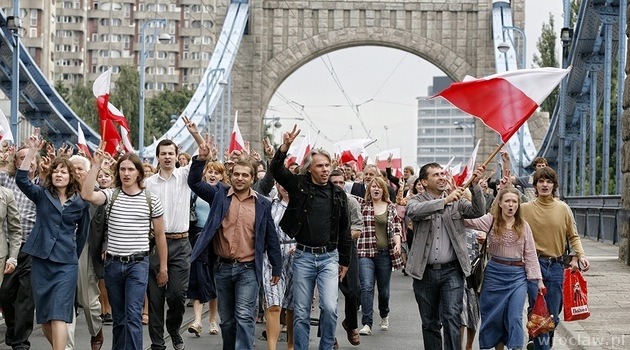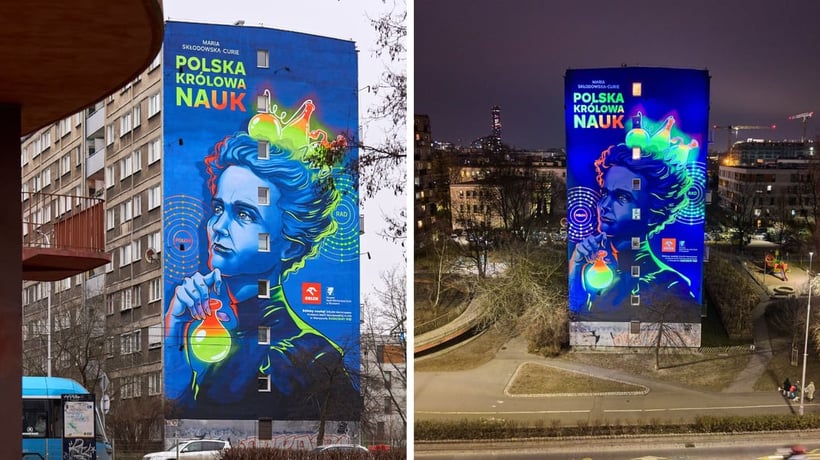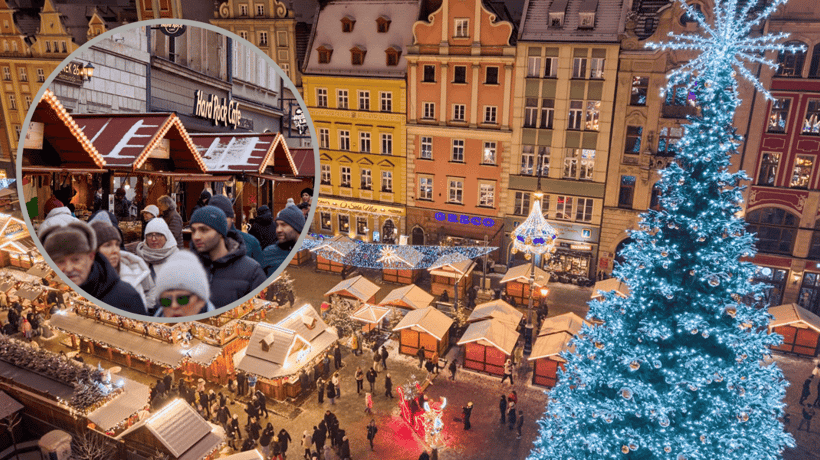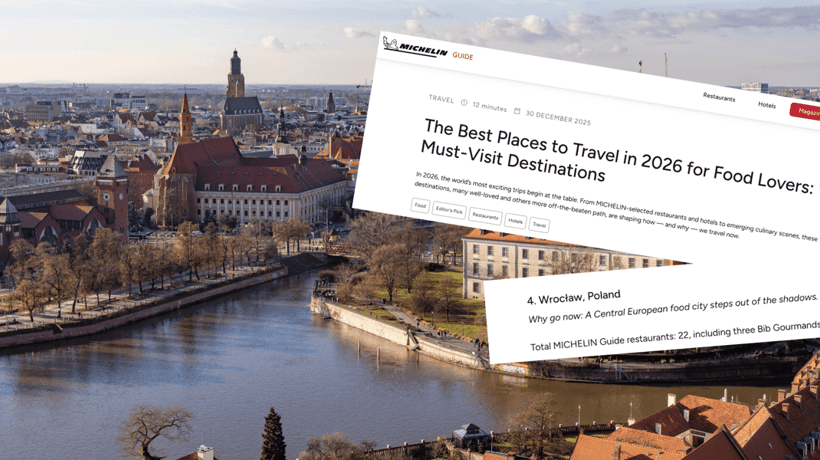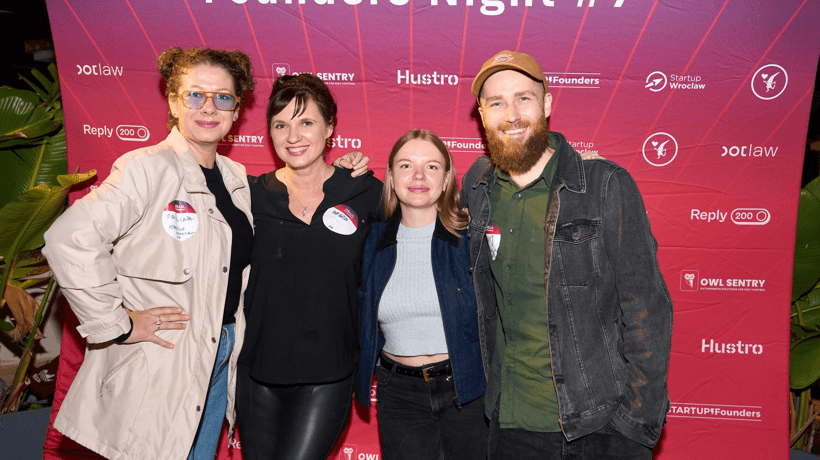On 13 December 1981, General Wojciech Jaruzelski, the then Prime Minister and First Secretary of the Polish United Workers' Party, enacted Martial Law throughout Poland. Thousands of people were arrested and interned. According to the Institute of National Remembrance, nearly 1,500 Solidarity activists and other people suspected of acting against the Communist government were sent to detention camps.Organisations, gatherings and strikes were strictly prohibited and the majority of press titles were suspended for several weeks. The right to travel was heavily restricted. Thousands of militia men and soldiers were patrolling the streets.
Wroclaw on strike
On the evening of 12 December, after the talks at the Nationwide Solidarity Board that he had attended in Gdańsk, the then Lower Silesia's Solidarity Leader Władysław Frasyniuk and his friends took a train back to Wroclaw. The railwaymen duly warned Wroclaw delegates about the enactment of Martial Law and helped Mr Frasyniuk to flee from the train. The union leader arrived at the MPK depot in ul Grabiszyńska in Wroclaw, where he worked as a driver. This is where Władysław Frasyniuk and Piotr Bednarz set up the Regional Strike Committee. On 14 December, they published a pamphlet which called for general sit-in strike. Over 30 different plants and institutions went on strike, including Pafawag, MPK, Elwro, Dolmar, Archimedes and both the University of Wroclaw and the Agricultural Academy. The strike was soon joined by the Wroclaw University of Technology, Mostostal, River Shipyard, Cuprum and ZNTK. The Militia resorted to violence to quell subsequent strikes, as a result of which over 1,200 people were arrested. 18 December, The Militia crashed on students demonstrating in Plac Grunwaldzki. Going on strike was but one of the methods to oppose the Communist government. Two Pafawag department discontinued operations to pay a moment of silence to the miners killed by the ZOMO. A number of plants collected money fto support detained activists and their families.
80 million
According to Łukasz Kamiński, PhD, a historian at the Institute of National Remembrance, the Regional Strike Committee did much more than just coordinating strike activity throughout Lower Silesia. The committee's structure included several departments responsible for finance, printing and distribution, communication and counter-intelligence. A few days before the enactment of Martial Law, Solidarity activists withdrew 80 million PLN from the union's bank account and deposited it in Cardinal Henryk Gulbinowicz's hands. The Communist authorities were unable to intercept the money as a result. Many years later, the events were depicted by Waldemar Krzystek in his "80 Million". The funds were used to help the activists' families.
Gas in the ZOMO-strasse
Every ten days or so, the Militia and the Secret Service would crash on smaller independent opposition groups. The focus of their activity was mainly on pamphlet printing and distribution. They gathered workers and a variety of students ranging from university through secondary to primary schools. People would often pin radio resistors to they lapels as a sign of opposition against the Communist government. Flowers were laid under the Solidarity plaque in Grabiszyńska on subsequent Martial Law enactment mensiversaries. The period also saw a number of demonstrations during which water cannons and tear gas were used against the crowd. That is why Wroclaw residents would call Plac Pereca a "Gaz-Platz" and Grabiszyńska a "ZOMO-strasse". The largest demonstration was staged on 31 August 1982, on the August Accords' second anniversary. The protest, which soon evolved into a clash against the Militia, involved 50 thousand people clustered in several places in Wroclaw. Kazimierz Michalczyk died in the riot, and several hundred people were arrested.
Wroclaw also listened to the Solidarity Radio, which aired short broadcasts ranging from several to over 10 minutes in length. Set up in May 1982, the Fighting Solidarity also had its own radio station.
Wroclaw Solidarity leaders, including Władysław Frasyniuk, Piotr Bednarz and Józef Pinior were not captured until the autumn of 1982. The arrest hardly broke the spirit of defiance in the city. Underground Solidarity structures continued activity, the Independent Youth Movement, which gathered secondary school students, and the Independent Students' Association were established in Wroclaw. Underground press was regularly circulated, there were also broadcasts from an independent radio. The Polish-Czechoslovak Solidarity, which organised meetings between political activists from both sides of the border in the Karkonosze Mountains, was also active.
Anniversary concerts
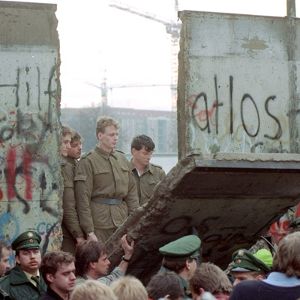
"A mury runą..." ["The Walls Will Collapse", a famous protest song by Jacek Kaczmarski] Solidarity Evening Live music / Elderly / All Ages 9 December 2015, 4 pm Światowid Solidarity Songs Live music 13 December 2015 4.30 pm Main Lecture Hall at the Pope John Paul II Faculty of Theology Concert: "Za czym kolejka ta stoi" ["What Are You Queuing For?", an evergreen by Krystyna Prońko from the 1980s] at Pub Włodkowica 21
Live music Pub Włodkowica 21
